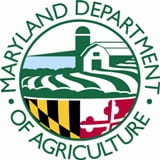MARYLAND PESTICIDE NEWS UPDATES
(April 2023)
by Niranjana Krishnan,
UMD Pesticide Safety Education Program Coordinator
The express purpose of the newsletter is to share proposed and upcoming changes to pesticide regulations; the information provided does not supersede existing pesticide labels and regulations. If you would like to receive this newsletter or have any questions about it, please email Niranjana Krishnan nkrish@umd.edu
- Forthcoming change: First pesticide tolerance established for hemp
Summary by Niranjana Krishnan nkrish@umd.edu
In April 2023, the Environmental Protection Agency (EPA) established the first pesticide tolerance (see glossary) for hemp. This was done for the herbicide ethalfluralin. Specifically, the maximum amount of ethalfluralin residues allowed to remain in or on hemp seeds was established.
- The EPA has accepted ethalfluralin labels that now contain directions for use on hemp. The new labels will allow farmers to use ethalfluralin to control annual broadleaf and grassy weeds that grow in hemp fields. Prior to this, only biopesticides were registered for use on hemp. The biopesticides are tolerance exempt because of their low risk to humans.
- The 2018 Farm Bill removed hemp and hemp seeds from the list of controlled substances and authorized its production. Consequently, over the last few years, hemp production has increased in Maryland and other states.
- According to the 2020 Maryland Pesticide Use Survey, ~ 122 lbs. of ethalfluralin was used on other crops.
Reference: https://www.epa.gov/pesticides/epa-establishes-first-pesticide-tolerance hemp
- Proposed change: New health protections to reduce ethylene oxide exposure In April 2023, the EPA proposed changes to ethylene oxide use to reduce air emissions and protect exposed workers. Ethylene oxide is a gas and, for certain uses, is registered as an antimicrobial pesticide. It is used to sterilize spices (like dried herbs and vegetables) at commercial sterilization facilities to control food-borne pathogens. It is also used to sterilize certain equipment like medical devices. Long-term exposure to ethylene oxide increases the risk of certain cancers.
- To protect workers involved in the sterilization process, EPA is proposing the use of self-contained breathing apparatus or a supplied airline respirator. Additionally, EPA is proposing real-time monitoring of ethylene oxide concentrations in the workplace. If concentrations exceed 10 parts per billion, all workers, including office workers, will be required to wear a breathing apparatus or respirator to reduce exposure.
- To reduce exposure concentrations within commercial sterilization facilities, EPA is proposing measures such as implementing air pressure gradients to regulate ethylene oxide flow, separating HVAC systems between office and sterilization areas,
ventilating ethylene oxide storage areas, automating the transport of sterilized materials, etc.
- To reduce exposure concentrations within healthcare settings, EPA is proposing lowering the amount of ethylene oxide used per sterilization cycle for medical devices (lower concentrations will also meet sterility requirements), separating sterilization spaces from other work areas, implementing air pressure gradients, using abatement devices to remove ethylene oxide from exhaust air, etc.
- Public comments are being sought until June 15, 2023.
Reference: https://www.epa.gov/newsreleases/epa-proposes-new-standards-protect public-health-reduce-exposure-ethylene-oxide
- Update on pesticide testing requirements for PFAS (Maryland-specific) In April 2023, two bills (SB0158 and HB0319) were amended and passed in the Maryland General Assembly. The bills require the Maryland Department of Agriculture ̶ in consultation with the Maryland Department of Environment, Maryland Department of Health, and the EPA ̶to study the use of PFAS in pesticides. The bills originally proposed prohibiting pesticide products from being registered in the state unless it was tested for PFAS. However, several questions were raised about PFAS testing methods which resulted in the bills being amended. The bills now require:
- An analysis of the health and environmental impacts of PFAS in pesticides in Maryland
- An identification of testing methods capable of testing PFAS in pesticides.
- An examination of characteristics that distinguish testing methods for PFAS that are validated for drinking water from testing methods that are validated for pesticides.
- A status update on federal efforts to certify a method for testing PFAS in pesticides.
- A status update on state and federal efforts to regulate or ban use of pesticides containing PFAS.
The bills take effect on June 1, 2023, and the Maryland Department of Agriculture must report its findings and recommendations by November 1, 2023.
References:
https://mgaleg.maryland.gov/mgawebsite/Legislation/Details/sb0158?ys=2023RS https://mgaleg.maryland.gov/mgawebsite/Legislation/Details/HB0319?ys=2023RS
Glossary:
1) Pesticide tolerance – The maximum amount of a specific pesticide that may remain in or on foods marketed in the United States. The EPA is responsible for setting the tolerances and ensuring they are protective of human health.
2) PFAS (perfluoroalkyl and polyfluoroalkyl substances) – They are a class of fluorinated compounds that do not degrade easily and are found in many products and matrices. Exposure to certain PFAS compounds can adversely affect human health.
